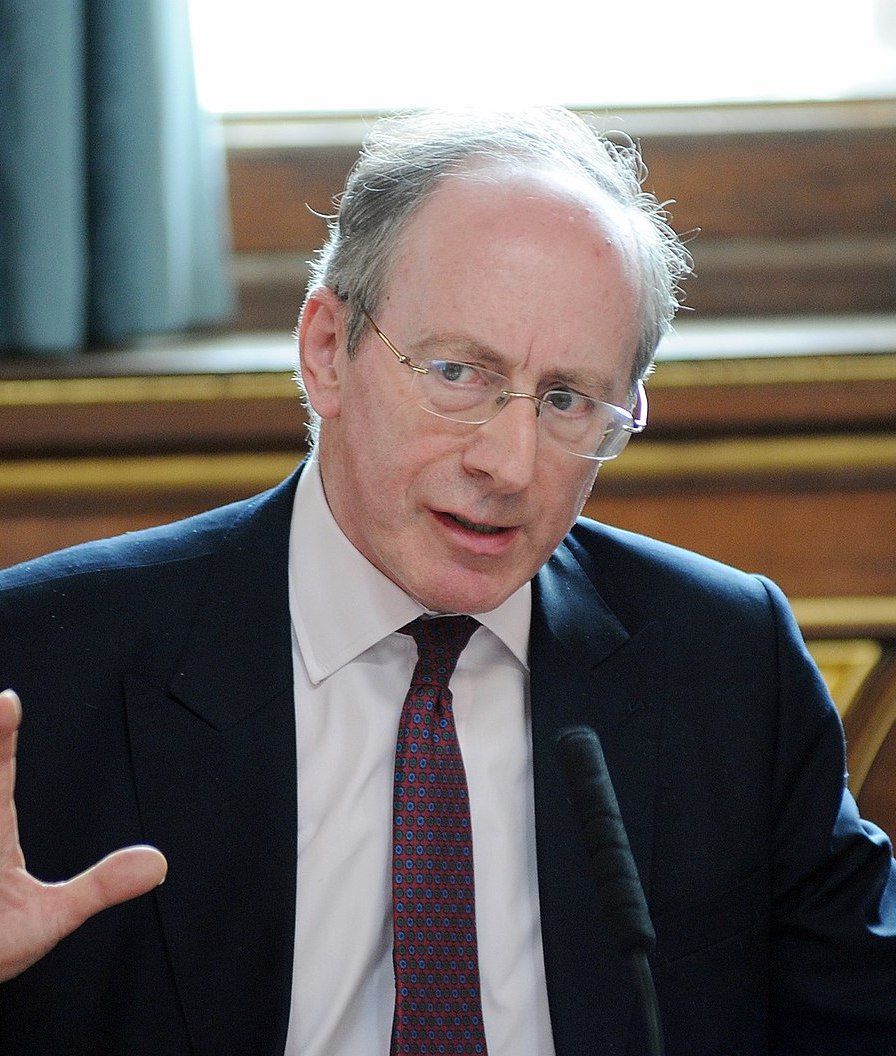1992
Our President in 1992/3 was:
The Right Hon. Malcolm Rifkind
He proposed the Toast to Sir Walter at our 84th Annual Dinner on Friday 5th March 1993 in The Balmoral Hotel
Download the [transcript] or read the [bulletin]
Summary of the Speech:
Malcolm Rifkind opens with humility and humour, expressing his pleasure and sense of privilege in delivering the address. He light-heartedly reflects on his legal background and quotes Guy Mannering and Heart of Midlothian to illustrate Scott's own legal wit.
Edinburgh’s Golden Age & the Act of Union
Rifkind situates Scott as a product of Edinburgh’s Golden Age and marvels at the cultural flourishing in Scotland post-1707. He attributes part of this to the political shift after the Union of the Crowns, which emancipated Scotland’s middle classes, unleashing innovation and intellectual growth.
Scottish Distinctiveness & Identity
He references both humorous and serious perspectives on Scottish uniqueness, including Lloyd George and the 1891
Scottish American Journal's
brain weight claim. A comic anecdote involving Lord Palmerston leads into a broader reflection on national pride.
Scott's Versatility
Scott’s wide-ranging talents are compared to a character from
The Bride of Lammermoor. Rifkind laments the loss of such intellectual breadth in the modern era, citing Churchill’s five-month Admiralty yacht trip as a bygone luxury for civil servants.
Scott’s Patriotism and Rediscovery of the Regalia
Rifkind focuses on Scott's patriotic deeds, especially his key role in the rediscovery of the Honours of Scotland in 1817. He quotes Scott’s dramatic account of the emotional moment when the regalia were found after 110 years, symbolising the enduring spirit of Scotland.
Scott as Unionist and Defender of Diversity
Though a staunch Unionist and Tory, Scott did not favour uniformity. Rifkind discusses Scott’s leadership in defending Scottish banknotes during the 1820s Treasury crisis and celebrates the Malachi Malagrowther letters as pivotal in reigniting Scottish pride.
Literary Modesty and Enduring Legacy
Scott’s modesty is underlined with his 1826 quip about Shakespeare. Rifkind affirms that Scott gave Scotland its international literary identity and helped position it centrally in European culture.
Relevance to Modern Politics
Scott’s version of patriotism is framed as inclusive and non-nationalist. Rifkind draws modern parallels, warning against conflating union with uniformity and urging respect for legal and cultural distinctiveness—especially in the context of debates over Europe and a single currency.
Military Reflections & Final Tribute
As Secretary for Defence, Rifkind notes Scott’s views on military leadership, quoting both Scott and the Duke of Wellington. He concedes Scott’s writings on war weren’t universally admired, but insists Scott's lasting influence is beyond dispute. He closes with Thomas Carlyle’s tribute to Scott as an exemplar of British manhood.
Notable and Interesting Points
- Rediscovery of the Regalia is central—Rifkind vividly quotes Scott’s account of the chest being opened after 110 years.
- George IV’s pink tights: An anecdote about the king’s kilted appearance in 1822 adds both humour and historical context to Scott’s influence on monarchy and public image.
- Scott vs. Nationalism: Rifkind makes a strong case for distinguishing Scott’s patriotism from modern nationalist ideology.
- Malachi Malagrowther letters: Highlighted as an enduring defence of Scottish distinctiveness.
- Personal touch: As a serving Minister, Rifkind integrates his governmental experience, particularly on defence and legal systems, into his admiration for Scott.
Download the [transcript] or read the [bulletin]



